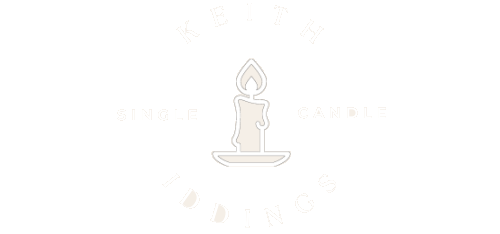Can We Stay?

One of Christianity’s early Desert Fathers, St. Anthony, instructed a follower as follows:
“In whatever place you live, do not easily leave it.”
I haven’t always followed that advice. For various reasons, I’ve dragged my family around the world. During over forty years of adult life, my wife and I have settled for a time in nine different places (not counting temporary quarters). I’ll admit, when put that way, it sounds a bit excessive. And though we had what I thought to be good justification for each move, I know there have been times when my wife and kids were frustrated at our transience.
Why do I have a hard time putting down roots? There was a day when most people on Earth were tied to a particular spot. Few traveled more than a few miles from where they were born. If they went on a pilgrimage or were conscripted into a military adventure, they returned to their land. My rootlessness would have been unthinkable for most.
But these days, travel is much more common. And I’m a good example. First, my livelihood is not based on working the ground as my ancestors’ was. Census data indicates that fewer than 2% of the US population works directly in agriculture. So I guess I’m not alone. Second, the nature of my professional career generally meant that if I wanted to advance, I needed to move geographically. Again, I’m not unique. By the time Americans reach my age, more than 50% no longer live in the state where they were born. Many have moved for employment reasons. Some, multiple times.
I don’t think my mobility has had much to do with fear or dissatisfaction with the people who live nearby, however. In general, when my wife and I have moved we have regretted leaving the people in our community behind. Saying goodbye to our neighbors, colleagues, and fellow church members was generally the most traumatic part of each move.
Neighbors and communities are supposed to be hard to leave. We humans live our lives in community. We are tribal, social creatures. Though we all have extended families, we also construct broader kinship groups that go beyond genetics. Friends can be closer “relatives” than our own flesh and blood. We all long for the Mayberry of Andy Griffith and Barney Fife. We want to know and be known. If someone hurts, we want to run to help. When we hurt, we want to know others will be there for us.
As the theme song of the TV series, “Cheers” expresses:
Sometimes you want to go
Where everybody knows your name
And they’re always glad you came.
Two events this past week have caused me to ponder once again what makes people leave a community. First, I heard an interview with a New York Times columnist who just came out with a new book. The book is The Devil You Know: A Black Power Manifesto and the author is Charles Blow.
Blow’s argument seems simple. Racism and white supremacy aren’t going away in the United States. No matter where they are geographically, as long as whites are in the majority, African Americans are going to feel unwelcome and be unable to exercise political influence. Therefore, Blacks should reverse the “great migration” of the first half of the 20th century. They should return to the southern coastal states in such numbers that they can once again become the majority population in those states.
Through this migration, African Americans can accomplish two things. First, they can establish strong Black communities where they can feel welcome and safe. Life can be enjoyable. Second, they can aggregate political power at the local, state, and federal level in a way that is almost impossible in the current environment.
The second event was a different kind of leaving. It wasn’t geographic but it was likely just as major. Well-known Christian evangelist, author, and bible teacher, Beth Moore, announced that she would no longer remain connected with the Southern Baptist Convention. She no longer feels at home in a church community with which she has deep ties. She has locked horns with the predominantly white male dominated SBC leadership over their uncritical support of Donald Trump. She has also pushed back against what she perceives as the denomination’s tilt toward sexism and misogyny, Christian nationalism, and white supremacy.
Finally, after a long history of connection with a kindred community of faith, Ms. Moore has had enough. She feels she must part ways with a group in which she has deep roots. I can’t imagine the pain she must feel at having to say goodbye.
Do the kinds of breaks represented in these two stories need to happen? There is no question they are frequent. I don’t need to quote you statistics on the disruptions of human relationships. You know them all too well. It is the rare person who escapes this world without alienating or being alienated by someone or some community. Whether it is divorce, termination at work, a church split, a fight with a parent, or something worse, relationships are fragile things that all too easily shatter.
But that’s not the picture of the Church. Jesus’ desire is that His disciples would be “one” in the same type of permanent unity as the Trinity (John 17: 20-21). The Church isn’t meant to be an exclusive group of men or a single race. Rather, there aren’t to be distinctions based on gender, race, or socio-economic status (Gal. 3:28). Indeed, the Church and its local manifestations are to be as stuck together as a body (1 Cor. 12:12-27).
To lose someone from the fellowship of the church ought to feel a bit like losing a part of our body. Ouch!! But even worse, when someone is pushed out of our community by our own actions, we ought to experience it as a kind of self-harm. When people such as Charles Blow and Beth Moore find they can no longer remain in fellowship with a community, that community needs to take a look deep inside.
Something is very wrong when people are asking the question, “Can I stay?” and having to respond, “No!” Whether it is America or just a particular denomination, it’s time to decide we can’t afford to lose any more good people. We are only hurting ourselves.

